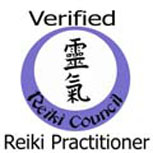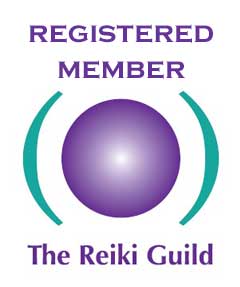What is Reiki?
How Does Reiki Work?
The History Of Reiki
What Are The Different Forms Of Reiki?
What is Usui Reiki Ryoho?
What is Usui Shiki Ryoho?
What Are The Benefits Of Reiki?
Ten Reasons To Learn Reiki
Reiki Facts From Fiction
Are Reiki Courses Or Reiki Treatments Better?
Choosing a Reiki Practitioner or Teacher
Stress and How Reiki Can Help
Reiki Articles
Reiki Glossary
What is Reiki?
Reiki is a natural healing system originally from Japan that uses variable frequency energy.
The energy is electromagnetic in nature and traditionally is believed to work on any level: physical,
emotional and spiritual.
What we term today as Reiki was traditionally known as 'The Usui System of Natural
Healing' or Usui-do (The Way Of Usui), developed by Mikao Usui in the 1900s but
today is used to encompass a whole range of energy healing systems. Reiki is a
Japanese term actually consisting of two words with varying interpretations:
Rei- Spiritual or sacred. Generally described as Universal or Spiritual energy,
the highest spiritual consciousness.
Ki- Energy. Life force energy, inside all living things, surrounds all living
things, lower frequency than Rei energy. Ki as believed in many Eastern traditions
needs to flow freely throughout the body. If we have an emotional trauma or a
physical illness we acquire a blockage. This disturbs the path of the energy through
our bodies and we develop an illness. The healthier someone is the more Ki they
will have flowing through their body.
Reiki is believed to work on clearing the energy blockages in the body which in turn restores the body to
health.
Reiki is passed on by the Reiki Master to the student by means of attunements or
empowerments. This enables the student to access and use the energy.
Reiki is non intrusive hands on healing and is both effective and pleasant.
Top
How Does Reiki Work?
Reiki is simple in its theory and in its practice, yet it is limitless in its
potential. The energy used in Reiki is made up of Universe energy and Ki energy
(or Chi in Chinese). Reiki symbols are used to allow varying frequencies of
energy to be applied.
Reiki can be used either as a passive or an active form of healing.
Passive Healing
When used passively, the Reiki practitioner acts purely as a channel for the
energy, allowing the energy to be channelled with no input into the frequency
or amplitude or effect of the energy.
Active Healing
When used actively, the Reiki practitioner uses intention and visualization with the aim of
focusing the energy to work on specific outcomes.
Reiki treatments are non-invasive and safe so can be used for anyone.
Top
The History Of Reiki
There are many theories about the history of Reiki, but the only documentary
evidence we have is from the writings and teachings of Mikao Usui and of his students.
Our knowledge of the history of Reiki is therefore limited to these, and to the knowledge
handed down from Mikao Usui to his students. There are many books on the subject of
Reiki, and many Reiki Masters, giving many accounts of the history of Reiki, and
many ways of teaching and practicing Reiki.
Reiki was discovered by Dr Usui in the early 1900's. There are various dates given
for this (1914, 1921, 1922), with 1922 being the most likely .It is said by some
that Dr Usui merely re-discovered Reiki, that Reiki was a lost ancient art.
In his writings, Mikao Usui states :
"The Usui Reiki Therapy is something no-one
before has discovered, and bears comparison with no other treatment in the world"
Usui integrated Reiki into the way of living, introducing the Reiki ideals. The
ultimate purpose being to understand the ancient secret method of gaining
happiness –
'Reiki, the Art of Inviting Happiness'.
Dr Usui practiced Reiki from his clinic in Tokyo, and held workshops and classes
to spread Reiki knowledge. His fame spread throughout Japan, and he was invited
to many parts of Japan to give healing. He spent his remaining years in caring
for people through healing and teaching.
Today, Reiki is practiced by many thousands of people around the world.
Top
What Are The Different Forms Of Reiki?
There are modern versions of Reiki that have been developed by various Reiki
Masters, some drawing from the traditional form of Usui Reiki, and some not.
The differences tend to be the way the energy is accessed, channeled and used
– by using symbols and/or mantras and/or visualizations/intentions specific to
the form of Reiki practiced. The frequency of the energy and the way the energy
is used may vary between styles also. What is common to all forms of Reiki is
the use of energy for healing and self-development.
Top
What is Usui Reiki Ryoho?
Usui Reiki Ryoho refers to the traditional form of Usui Reiki that has recently been shared
by Japanese Reiki Masters. This is considered to be closer to the original system taught by
Usui-sensei, both in content and in spirit. This form of Reiki has more of the
original Usui methods and is taught and practiced in a disciplined and structured way.
We teach a traditional Japanese form of Usui Reiki with the addition of the
relevant knowledge to prepare our students to practice Reiki safely, effectively
and professionally.
Top
What is Usui Shiki Ryoho?
Usui Shiki Ryoho refers to the form of traditional Reiki that comes from the
Takata lineage. This is Reiki knowledge and practice that has been handed down
directly from Usui Sensei to Dr Hayashi then to Mrs Takata. This is a form of
Westernized Usui Reiki.
Top
What Are The Benefits Of Reiki?
Every one that comes to Reiki will have their own reasons, and their own journey
to travel.
Reiki can be just a search for direction, or a form of self healing, or a new career perhaps.
Reiki can be used to support clients with any condition physical or otherwise. Or Reiki can
be a way of life, the start of a very beautiful and fulfilling spiritual journey
leading to understanding, happiness, and ultimately harmony and oneness.
Every one that starts on the Reiki path can choose how far and how fast they
travel towards the ultimate goal.
Whatever Reiki means to you, to receive Reiki healing or to learn Reiki is to
change your life for the better – to begin the journey.
Top
Are Reiki Courses Or Reiki Treatments Better?
Both Reiki treatments and Reiki courses are wonderful experiences that are are
highly beneficial to the student or recipient of Reiki. To achieve good results
with healing you may only need one treatment or a few Reiki treatments, it really
depends on the infividual and their circumstances.
If it is likely that someone will need many treatments it is really much better
for them to take a Reiki course as this will empower them and enable them to
work on themselves on a regular basis, rather than relying on a practitioner.
Additionally with Reiki courses the student is connected to the Universe and
so will have a constant supply of universal energy to heal themselves as well
as being able to move further along their higher path.
We offer specific Reiki courses for those who wish to purely work on themselves,
rather than becoming Reiki practitioners. It is preferable and more cost effective if someone
requires many treatments that they take this course, as this
way they are taking responsibility for their own well being and are able to
continually self heal and take greater steps in developing their universal
and self awareness.
Top





